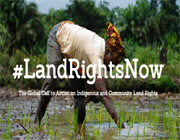H.E John W Ashe
President of the UN General Assembly
United Nations, New York
Email: [email protected]
07 March 2014
Your Excellency,
We refer your Aide Memoire of 26 February 2014, on your decision regarding the High Level Plenary Meeting to be known as World Conference on Indigenous Peoples in September 2014. We have the honor of transmitting our statement on behalf of the Indigenous Peoples of the Asia region.
Joan Carling
On behalf of the Asia Indigenous Peoples Caucus
Copy to:
H.E. Ban Ki-moon, UN Secretary-General, Email: [email protected]
H.E. Mr. Joao Soares Da Gama, Permanent Representative of Guinea-Bissau, Chair of the African States Group, Email: [email protected] and [email protected]
H.E. Mr. Mahe ‘Uli’uli Sandhurst Tupouniua, Permanent Representative of Tonga, and Chair of the Asia-Pacific States Group, Email: [email protected]
H.E. Mr. Stefan Tafrov, Permanent Representative of Bulgaria, Chair of the Eastern European State Group, Email: [email protected]
H.E. Mr. Octavio Errazuriz Guilisasti, Permanent Representative of Chile, Chair of the Latin American and Caribbean States Group, Email: [email protected]
H.E. Mr. Jim McLay, Permanent Representative of New Zealand, Chair of the Western European and Other States Group, Email: [email protected]
Statement from the Asia Indigenous Peoples Caucus
In response to the UN General Assembly resolution A/RES/65/198 “to organize a high-level plenary meeting of the General Assembly, to be known as the World Conference on Indigenous Peoples, to be held in 2014”, the indigenous peoples in the Asia region have been engaging in good faith from the very beginning with the understanding that this process allows for the full and effective participation of Indigenous Peoples in Asia. Through our regional preparatory meeting, we came out with “A Call to Action from Indigenous Peoples in Asia to the World Conference on Indigenous Peoples”. This outcome documents reflects the concerns of indigenous peoples in the Asia region. Further, we have actively participated in the Global Preparatory Meeting in Alta, Norway in June 2013 and fully endorsed the Alta Outcome Document on the WCIP.
In response to the Aide Memoire of the President of the 68th session of the General Assembly (PGA) issued on 26 February 2014, we collectively express our serious concerns relating to the consultation arrangements for the high level plenary meeting of the UN General Assembly, to be known as the World Conference on Indigenous Peoples. We note with deep regret that the decision of the PGA fails to respect or uphold the rights of indigenous peoples, as affirmed in the UN Declaration on the Rights of Indigenous Peoples (UNDRIP). Moreover, it does not comply with the UN General Assembly modalities resolution (A/RES/66/296). The PGA’s decision fails to ensure the full, effective, direct and equal participation of indigenous peoples, and to uphold internationally recognized standards for indigenous peoples to participate in decision-making process.
The PGA’s Aide Memoire indicates that the commencement of the consultation process on March 3,2014 does not provide for indigeous peoples and states to work together on an equal basis towards an outcome document of the WCIP. This arrangement does not foster interactive and constructive exchanges and dialogues between indigenous peoples and states in line with the objectives of the WCIP. We find the consultation process not consistent with article 18 of the UNDRIP which affirms the right to participation in matters that affect to indigenous peoples.
The OP7 of the modalities resolution provides for an informal interactive hearing with representatives of indigenous peoples and representatives of different entities to provide valuable input into the preparatory process for the World Conference. However, the PGA’s Aide Memoire limits our participation to “interactive civil society briefing”.
Under the HRC Resolution A/HRC/21/24, on ways and means of promoting the participation at the United Nations of Indigenous Peoples’ representatives on issues affecting them, the UN Secretary General recommends that the United nations should enable Indigenous Peoples’ participation in all relevant work of the United Nations, “in a way that realizes, respects, promotes and protects their rights under the United Nations Declaration on the Rights of Indigneous Peoples and other relevant international human rights standards” (Para 66). The Secretary General further emphasizes, “to the extent that it has been permitted to date, indigenous peoples’ participation at the United Nations has been a positive experience. It has been a process of mutual trust-building, premised on equality and equity among stakeholders, and has led to fruitful outcomes and greater commitments by indigenous peoples, States and the United Nations system to strengthen recognition and respect for indigenous peoples’ rights.” Unfortunately the PGA’s decision does not allow this good practice to continue.
In the context of the above, we thereby urge the PGA to reconsider his decision on the WCIP consultation process and ensure full, effective, equal and direct participation and engagement of indigenous peoples in order to arrive at an action oriented outcome document of the WCIP in strengthening the implementation of the UN Declaration on the Rights of Indigenous Peoples.
We also call on all member-states of the UN to ensure the full and effective participation of indigenous peoples in the WCIP in line with the UN General Assembly Resolution A/RES/66/296 and the UN Secretary General report A/HRC/21/24 recommendation. Unless there is an assurance for the full, effective, direct and equal participation of indigenous peoples, the Asia Indigenous peoples, the Asia Indigenous Peoples Pact, together with other indigenous peoples organizations and institutions in Asia shall disengage from the WCIP process and shall seriously consider calling for its cancellation. We remain committed to advance the recognition and protection of the rights of indigenous peoples through various mechanisms and forms of action.
Endorsing organizations:
- Asia Indigenous Peoples Pact (AIPP), Thailand
- Tebtebba Foundation, Philippines
- Borok Peoples Human Rights Organization, Tripura, India
- Karbi Human Rights Watch, Assam, India
- Naga Peoples Movement for Human Rights, NE India
- Cordillera Peoples Alliance (CPA), Philippines
- Kalipunan ng Mga Katutubong Mamamayan ng Pilipinas (KAMP) – National Alliance of Indigenous Peoples Organizations in the Philippines
- Aliansi Masyarakat Adat Nusantara (AMAN), Indigenous Peoples’ Alliance of the Archipelago, Indonesia
- Jaringan Orang Asal SeMalaysia (JOAS), Malaysia
- PACOS Trust, Malaysia
- Center for Sustainable Development in Mountainous areas, Vietnam
- Bangladesh Adivasi Forum, Bangladesh
- Kapaeeng Foundation, Bangladesh
- Sabah Native Resource and Mediation Centre (PUSAKA), Malaysia
- Centre for Research and Advocacy, Manipur, India
- Adivasi Women’s Network, Jharkhand, India
- Organization for Promotion of Kui Culture, Cambodia
- Kirat Yakthung Mangenna Chumlung, Nepal
- Cambodia Indigenous Youth Association (CIYA), Cambodia
- Indigenous Agricultural Development of Cambodia (IADC), Cambodia
- Asian Indigenous Women’s Network, Philippines
- Highlander Associations (HA)-Ratanakiri, Cambodia
- Indigenous Community Support Organisation (I.C.S.O), Cambodia
- Nepal Kirat Kulung Bhasa Sanskriti Utthan Sangh (Association of Nepal Kirat Kulung Language and Cultural Development), Nepal
- Indigenous Rights Active Members (IRAM), Cambodia
- Naga Women’s Union, Manipur, India
- Lawyers’ Association for Human Rights of Nepalese Indigenous Peoples (LAHURNIP), Nepal



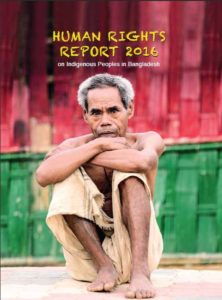
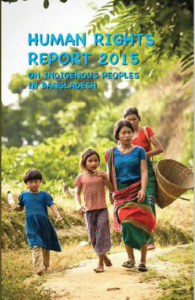
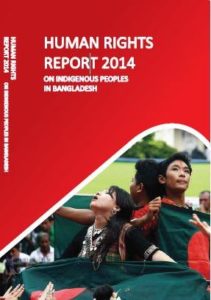
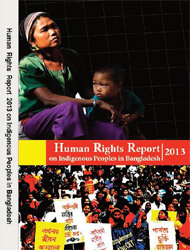
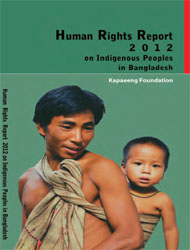
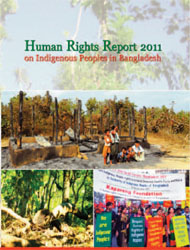
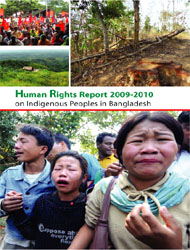

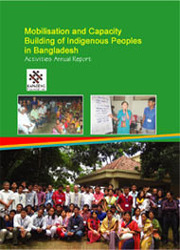



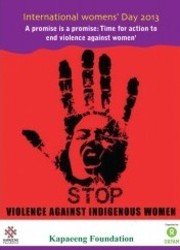
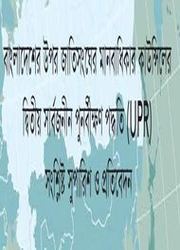
 March 11th, 2014
March 11th, 2014  KapaeengUser
KapaeengUser  Posted in
Posted in 